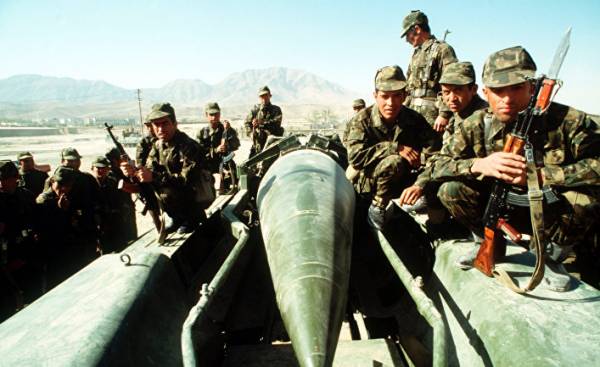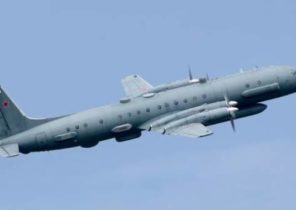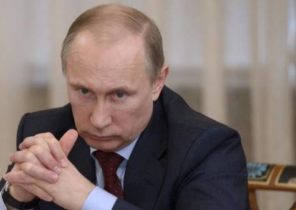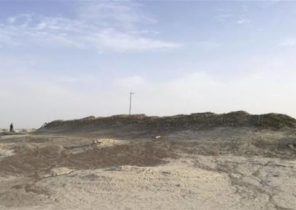
Almost no description of the Soviet invasion of Afghanistan in 1979 is not complete without the famous quotes Advisor to the U.S. President Zbigniew Brzezinski: “We didn’t push the Russians to invade, but we knowingly increased the probability that they will. That secret operation was an excellent idea. She lured the Russians into the Afghan trap”. He, according to him, the same day “meaning” I wrote to President Carter: “we Now have the opportunity to arrange the USSR its Vietnam war.”
This quote from an interview from 1998, that is, in a sense, “postactions”. Too true to be true?
The truth we learn only when another closure or already closed again, the archives of the American and Soviet service at the time. In Russia it was possible in the early 90-ies with the limits and a very short time, so historians have to be content with the only official and published evidence and interviews in the Newspapers. Based on this, I must admit that the reports held in 2013, the international conference of the University of Hamburg named Helmut Schmidt on Afghanistan during the cold war and the end of the Soviet Union, all are full of facts overview of the currently available historical information.
In his report on the current interpretations and debates Cologne political scientist Martin Deuerlein (Martin Deuerlein) distinguishes three positions Western researchers: the Orthodox thesis that the Soviets wanted “to grasp world power,” suggests ideological. and geopolitical motives of the Soviet Union. “Revisionist” antithesis suggests that the us government provoked the Soviets to intervene, and the pursued geopolitical motives for the suppression of the Soviets to protect their own oil interests in the Persian Gulf region. The third thesis of “post-revisionists” reject both interpretations, and represents the invasion of the Soviets as “military aggression” that has become possible because of plexus accidents, misinterpretation, and also because of the lack of communication and information.
Close to this idea fits the explanation for the Cologne historian Elke Baier (Elke Beyer), which — on the basis of their research of cities and history of planning comes from the “short-circuit” the long-term Russian strategy in Afghanistan. She recalls that the Soviet Union 50 years actively helped substantial funds for development of non-Communist Daoud government, to strengthen its position in this country, which since the nineteenth century, probably under British influence. To do this, Khrushchev invested in 1955, a hundred million dollars and told to build a Polytechnic Institute, which drove the architecture school, built in the USA.
Then Afghanistan was sort of the UN-coordinated “hangout competing development assistance”, in which American, German, Danish, French and Japanese projects have faced an ambitious Russian “master plan” for the development of Kabul. Water supply was organized by the Japanese company, power grid and power plant was created jointly by German and Russian, and the airport of Kabul, although built of the Council, but the system of communication provided. Model of modernization of Kabul, although the same was followed by all international construction company — precast concrete blocks, sewage and electrification — but in Russian projects everything went according to Soviet standards and standard designs. The Soviets even put a fully equipped house-building combine. As a kind of monument only partially completed — the intent is still to visit today in Kabul village “Neighborhood No. 1” the comfort which the tenants continue to appreciate, although in the West a glance it looks dull.
To “short circuit” of the Soviet invasion — so the authors of other reports led the Afghan Communists themselves, when they in 1978 with the help of the army and the coup came to power and imposed a country with ancient traditions of modernization on the Soviet model. Split in two factions, they for a short time was able to suppress Saroyan resistance, but without Russian military assistance could not resist. After the 21st call for help from Kabul, the Soviet Big brother lost patience and decided by the invasion also allow factional dispute in favor of Babrak Karmal, who was then his countrymen had to seem like a Soviet puppet. The increasing uprising of armed, primarily from abroad, from both the United States and the Muslim States of the Mujahideen in 1985 to power the new, moderate Islamic government of Mohammad Najibullah. It has survived even the departure of the Soviets in 1989, until it was expelled by the Taliban from Kabul, which in turn gave way for the Northern Alliance General Dostum. In the end, NATO and the Afghan Loya Jirga established a new Karzai government.
Great attention to the documentation of the Congress on the implications of the Afghan adventure to Russia and Soviet veterans in the States-successors of Soviet Union. Of the more than 600 thousand Soviet soldiers, mostly conscripts, many were not only from Belarus and Ukraine, but 120 thousand from the Muslim Soviet republics. From today’s point of view may surprise you that they are likely to feel more connected to Soviet state power than with their Muslim brothers in Afghanistan, although the majority of veterans in the lower ranks complained about the harassment, drug abuse and bullying on the part of comrades and superiors. They were, says contemptuously one of the returning “star dregs of society”. Since the majority of the population, the war in Afghanistan to this day believes a political mistake and a painful defeat, that many veterans feel at home is not recognized. While the victorious world war II veterans were honored as heroes and well supplied, at first very little was done for the rehabilitation and integration of “Afghans” that many have fallen, they began to drink hard or resigned military legends. “And yet we won,” is the refrain of one of the many documented songs of veterans.
Only their inclusion in a large veteran Association of the glorious Soviet past and the new national militarism of Putin led to the fact that veterans of the Afghan war, the Fatherland was to thank them for their heroism. In Belarus they honor the nostalgia for Stalin.
Medical rehabilitation of veterans with serious war injuries and post-traumatic complications were carried out notably in collaboration with American experts for the rehabilitation of veterans of the Vietnam war, diseases which are wonderfully like those “Afghans”. So in this respect the book’s title is very accurate — even if it is not the answer to quote Brzezinski.







